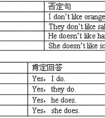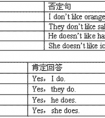根据句子意思完成单词(共10空,每题1分;计10分)小题1:You can’t i_________ what life will be like in 50 years’ time?小题2:--The old man is so wise and he must re-九年级英语
题文
| 根据句子意思完成单词(共10空,每题1分;计10分) 小题1:You can’t i_________ what life will be like in 50 years’ time? 小题2:--The old man is so wise and he must read many different kinds of books. ---Yes, He knows everything and I think he is k_________. 小题3:The young man was full of energy. And after having a short rest, he c_________ working. 小题4:Parents must pay more a_________ to children. Also children should learn to thank their parents. 小题5:Two years ago, Mr Green p_________food and clothes for his big family. 小题6:When the ice is h_________,it turns into water. 小题7:Sending m_________to your friends instead of writing to them helps save a lot of your time. 小题8:Without my p________ , don’t touch my things. 小题9:His parents were satisfied with him because he s_________ in passing the difficult exam. 小题10:Both of the businessmen felt sorry as their talk b_________off without an agreement. |
答案
小题1:imagine 小题2:knowledgeable 小题3:continued 小题4:attention 小题5:provided 小题6:heated 小题7:messages 小题8:permission 小题9:succeeded 小题10:broke |
试题分析: 小题1:句意:你不能想象50年后的生活将是怎样的?情态动词后应该用动词原形,故用imagine。 小题2:句意:老人是如此的聪明,他必须多不同种类的书。是的,他知道所有的事情,我认为他的知识是渊博的。因为系动词应该用形容词来做表语,故用knowledgeable。 小题3:句意:这位年轻人充满了能量。短暂的休息后,他继续工作。根据was full of 可知后面的句子也应该用过去式,故用continued。 小题4:句意:父母必须更加关注孩子。孩子们也要学会感谢自己的父母。这里是短语pay attention to注意。 小题5:句意:两年前,格林先生提供食物和衣服给他的大家庭。根据Two years ago 可知谓语动词应该用过去式,这里是短语provide sth for sb 为某人提供某物,故用provided。 小题6:句意:当给冰加热时,它变成水。ice 是主语,它和heat之间是被动关系,故用过去分词heated。 小题7:句意:给你的朋友发短信而不是写信给他们可以节省你很多时间。这里是短语send messages to sb给某人发短信。 小题8:句意:没有我的允许,别碰我的东西。介词without后应该用名词permission。 小题9:句意:他的父母对他很满意因为他成功地通过艰难的考试。这里是短语succeed in doing成功地做某事,故用succeeded。 小题10:句意:这两位商人感到难过,因为他们的谈话没有达成协议就中断了。根据felt可知这里的谓语动词应该用过去式broke。 |
据专家权威分析,试题“根据句子意思完成单词(共10空,每题1分;计10分)小题1:You can’..”主要考查你对 实义动词,实义动词的单数第三人称形式,动词短语 等考点的理解。关于这些考点的“档案”如下:
实义动词实义动词的单数第三人称形式动词短语
考点名称:实义动词
- 实意动词:
即行为动词,表示动作的动词。实义动词与系动词是相对的,能独立用作谓语。
它分为及物动词和不及物动词两种:
及物动词是指后面要求有直接宾语的动词;
不及物动词指后面不需要跟宾语的动词。 实意动词使用方法:
及物动词
后面必须跟宾语意义才完整的实义动词,叫做及物动词(transitive verb)。如:
I believe that the committee will consider our suggestion.我相信委员会将会考虑我们的建议。
“How long can I keep the book ?”Harry asked.哈里问:“这本书我可以借多久?”
Dr. Bethune set us a good example. 白求恩大夫给我们树立了好榜样。
Crude oil contains many useful substances.原油含有许多有用的物质。
不及物动词
本身意义完整后面不须跟宾语的实义动词,叫做不及物动词(intransitive verb)。如:
Birds fly.鸟会飞。
It happened in June 1932.这件事发生于一九三二年六月。
My watch stopped.我的表停了。
She spoke at the meeting yesterday evening. 她在昨天晚上的会上发了言。
兼作及物动词和不及物动词
英语里有不少实义动词可以兼作及物动词和不及物动词。这样的动词又有两种不同的情况
a)兼作及物动词和不及物动词时,意义不变。试比较:
Shall I begin at once?我可以立刻开始吗?(begin作不及物动词)
She began working as a librarian after she left school.她毕业后当图书馆管理员。(began作及物动词)
When did they leave Chicago?他们是什么时候离开芝加哥的?(leave 作及物动词)
They left last week. 他们是上周离开的。(left 作不及物动词)
b)兼作及物动词和不及物动词时,有时意义不尽相同。如:
Wash your hands before meals.饭前要洗手。
Does this cloth wash well? 这布经得起洗吗?- 英汉实意动词用法比较:
与汉语的比较,有时英语动词的及物和不及物的用法,与汉语的用法不一样,请注意下列两种情况:
a)有的动词在英语里只能用作不及物动词,而汉语则可用作及物动词,如arrive到达,agree同意,listen听。英语里这些动词后面常接介词。如:
We arrived at the railway station at noon.
我们于中午到达火车站。(at不能省去)
(比较:We reached the railway station at noon.)
Everybody listened to the lecture with great interest.
每个人都很有兴趣地听讲课。(to不可省去)
(比较:We all heard the lecture.)
Do they agree to the plan?他们同意这个计划吗?(to不可省去)
b)有的动词在英语里能用作及物动词,而在汉语里则不能用作及物动词,如serve为…服务。
Our children are taught to serve the people wholeheartedly.
我们的儿童被教以全心全意为人民服务
用于be动词之后,实义动词之前。 实意动词的用法:
肯定句:
主语+动词过去式+其它
否定句:
主语+助动词didn‘t+动词原型+其他
一般过去式:
Did+主语+动词原型+其他
考点名称:实义动词的单数第三人称形式
在一般现在时的肯定句中,当主语为非第三人称单数时,谓语动词用原形;
当主语为第三人称单数时,谓语动词用单数第三人称形式。- 实义动词的一般现在时的单数第三人称形式遵从“s,es, ies”六字母规则。如下表所示:


![How much does it ______ to fly from Yancheng to Hainan Island?[ ]A. cost B. payC. spend D. take-七年级英语](http://www.00-edu.com/d/file/ks/4/2/shiyidongci/2020-01-05/small7dcf2f05998de63e10cc3629787031c81578210087.png)

![He always _____TV in the evening. He _____ listening to the radio. [ ]A. watch, don't like B. watches, doesn't like C. watching, don't like D. watch, do-七年级英语](http://www.00-edu.com/d/file/ks/4/2/shiyidongci/2020-01-05/small45d599b4a60b84e61cec210bfbf051f51578214524.png)
![I'd rather ___ to the Mcdonald's Restaurant because I like to listen to quiet music.[ ]A. to go B. going C. go D. went-八年级英语](http://www.00-edu.com/d/file/ks/4/2/shiyidongci/2020-01-05/small1767bba1727fef2c035c53dcbd9bc20e1578209517.png)
